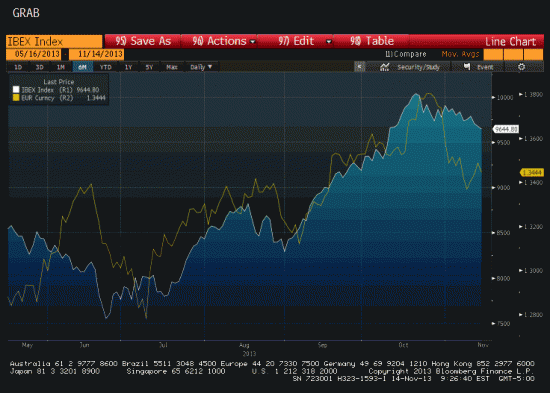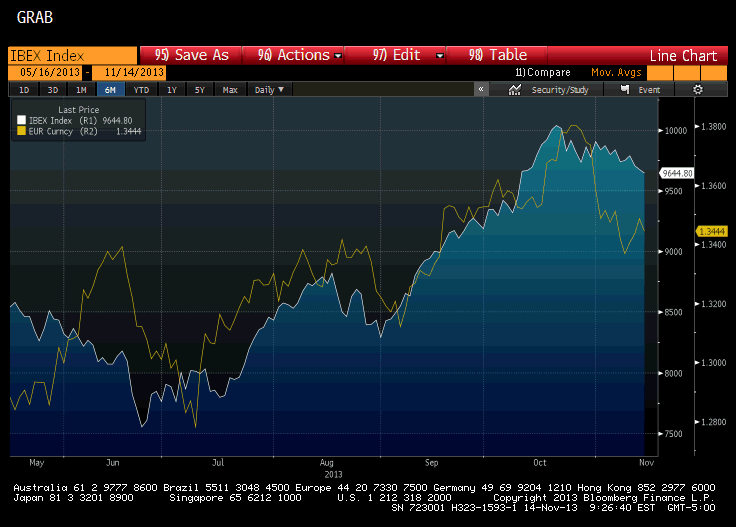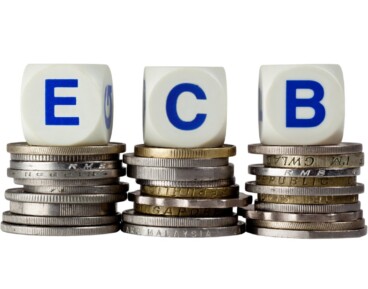German automotive industry at a crossroads
Kategoria: Business
At the start of the year, flows leaving the emerging markets appeared to go to the US and Japanese equities. In the summer, as the euro area PMIs signaled a recovery, many fund managers were caught under-weight Europe.
Fund trackers report that money has flowed into European equity funds (and ETFs) consistently over the past 4-5 months. A few leveraged funds made noises about buying distressed assets and among the most distressed assets were Greek banks. For other fund managers, Greece was still too risky, but the prospective returns in Germany, a safe haven, looked too meager. Spanish and Italian assets appeared to offer an attractive middle ground. Their asset markets have generally outperformed.

This Great Graphic, using Bloomberg data, shows the co-movement of the euro (yellow line) and the Spain’s bourse, the IBEX 35. Over the past week and past month, Spanish (and Italian) shares have begun under-performing. Over the past five sessions, Spain’s IBEX35 is off 1.1% and the FTSE MIB Index (consists of the 40 most liquid and capitalized shares listed on the Borsa Italiana) is off almost 1.6%. This represents the worst performance among the major European bourses. Yet it is not just this past week, but it is true of the past month. They are the only two major bourses that are fallen over this period.
While the relative weakness of Spanish (and Italian) shares may act as a drag on the euro, a potential mitigating factor is that Spanish (and Italian) bonds are continuing to out perform. Still, the financial fragmentation or disintegration means that Spanish banks and financial institutions, for example, are increasingly the primary buyers of their own government bonds



